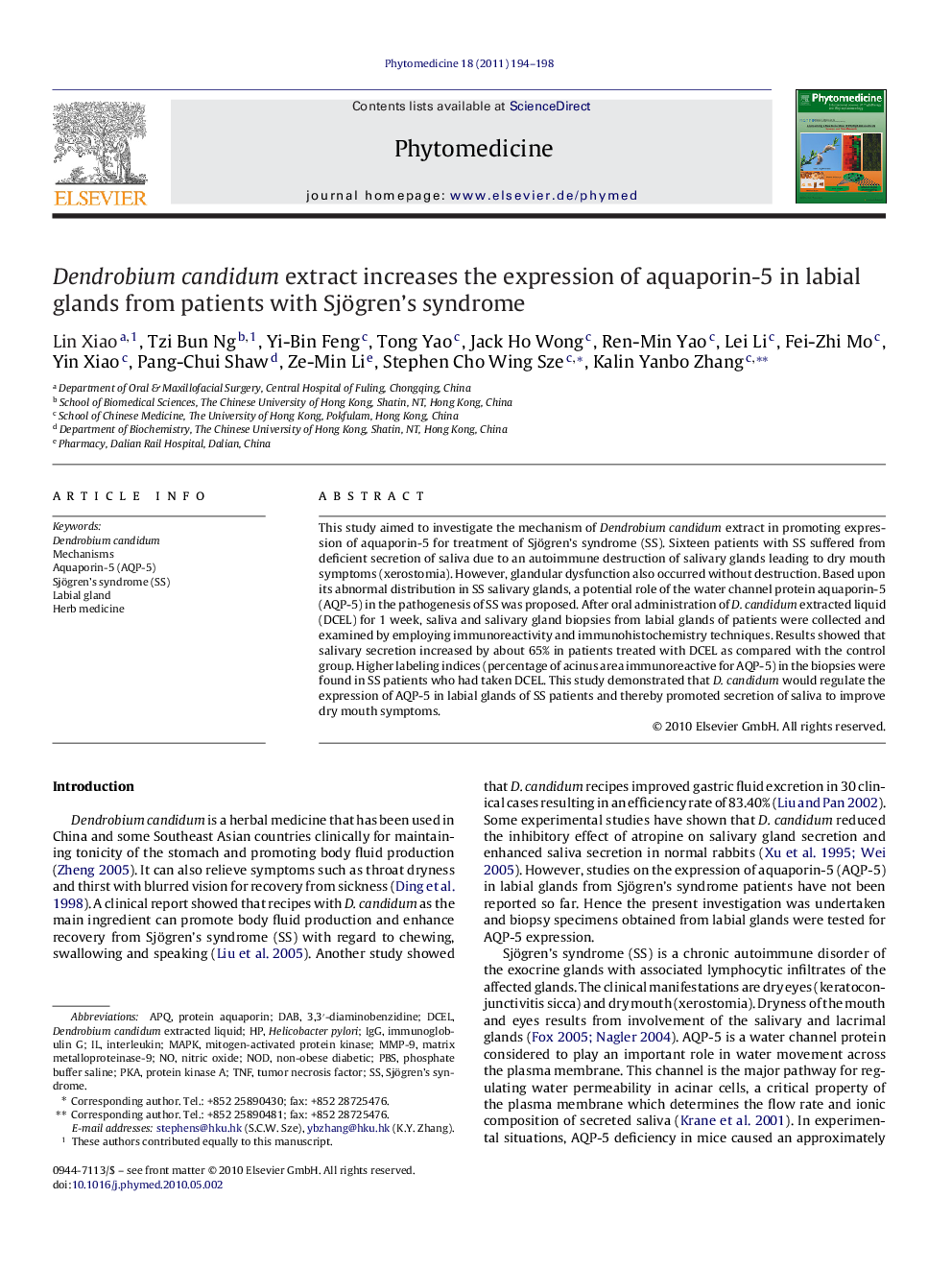| Article ID | Journal | Published Year | Pages | File Type |
|---|---|---|---|---|
| 5816998 | Phytomedicine | 2011 | 5 Pages |
Abstract
This study aimed to investigate the mechanism of Dendrobium candidum extract in promoting expression of aquaporin-5 for treatment of Sjögren's syndrome (SS). Sixteen patients with SS suffered from deficient secretion of saliva due to an autoimmune destruction of salivary glands leading to dry mouth symptoms (xerostomia). However, glandular dysfunction also occurred without destruction. Based upon its abnormal distribution in SS salivary glands, a potential role of the water channel protein aquaporin-5 (AQP-5) in the pathogenesis of SS was proposed. After oral administration of D. candidum extracted liquid (DCEL) for 1 week, saliva and salivary gland biopsies from labial glands of patients were collected and examined by employing immunoreactivity and immunohistochemistry techniques. Results showed that salivary secretion increased by about 65% in patients treated with DCEL as compared with the control group. Higher labeling indices (percentage of acinus area immunoreactive for AQP-5) in the biopsies were found in SS patients who had taken DCEL. This study demonstrated that D. candidum would regulate the expression of AQP-5 in labial glands of SS patients and thereby promoted secretion of saliva to improve dry mouth symptoms.
Keywords
PBSDABNODTNFIgGSjogren's syndrome (SS)pKaMMP-93,3′-diaminobenzidineMAPKDendrobium candidumimmunoglobulin GinterleukinNon-obese diabeticSjögren's syndromeLabial glandtumor necrosis factorphosphate buffer salineMatrix metalloproteinase-9MechanismsNitric oxideHelicobacter pyloriprotein kinase Amitogen-activated protein kinase
Related Topics
Life Sciences
Biochemistry, Genetics and Molecular Biology
Clinical Biochemistry
Authors
Lin Xiao, Tzi Bun Ng, Yi-Bin Feng, Tong Yao, Jack Ho Wong, Ren-Min Yao, Lei Li, Fei-Zhi Mo, Yin Xiao, Pang-Chui Shaw, Ze-Min Li, Stephen Cho Wing Sze, Kalin Yanbo Zhang,
